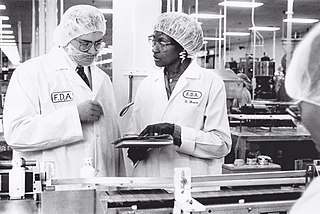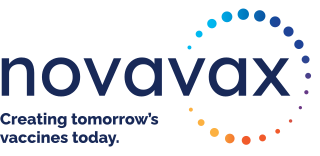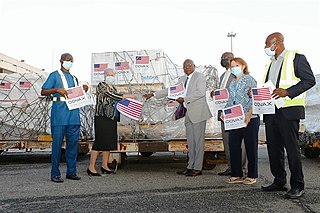
Médecins Sans Frontières, named Doctors Without Borders in English, is a charity that provides humanitarian medical care. It is a non-governmental organisation (NGO) of French origin known for its projects in conflict zones and in countries affected by endemic diseases. The organisation provides care for diabetes, drug-resistant infections, HIV/AIDS, hepatitis C, tropical and neglected diseases, tuberculosis, vaccines and COVID-19. In 2019, the charity was active in 70 countries with over 35,000 personnel; mostly local doctors, nurses and other medical professionals, logistical experts, water and sanitation engineers, and administrators. Private donors provide about 90% of the organisation's funding, while corporate donations provide the rest, giving MSF an annual budget of approximately US$1.63 billion.

The pharmaceutical industry is an industry in medicine that discovers, develops, produces, and markets pharmaceutical drugs for use as medications to be administered to patients, with the aim to cure and prevent diseases, or alleviate symptoms. Pharmaceutical companies may deal in generic or brand medications and medical devices. They are subject to a variety of laws and regulations that govern the patenting, testing, safety, efficacy using drug testing and marketing of drugs. The global pharmaceuticals market produced treatments worth $1,228.45 billion in 2020 and showed a compound annual growth rate (CAGR) of 1.8%.
The Campaign for Access to Essential Medicines is an international campaign started by Médecins Sans Frontières (MSF) to increase the availability of essential medicines in developing countries. MSF often has difficulties treating patients because the medicines required are too expensive or are no longer produced. Sometimes, the only drugs available are highly toxic or ineffective, and they often have to resort to inadequate testing methods to diagnose patients.

James Packard Love is the director of Knowledge Ecology International, formerly known as the Consumer Project on Technology, a non-governmental organization with offices in Washington, D.C., and Geneva, that works mainly on matters concerning knowledge management and governance, including intellectual property policy and practice and innovation policy, particularly as they relate to health care and access to knowledge.
Pharma fraud is a term to describe several illegal activities involving the manufacturing, marketing, and distribution of pharmaceuticals.

Lupin Limited is an Indian multinational pharmaceutical company based in Mumbai. It is one of the largest generic pharmaceutical companies by revenue globally. The company's key focus areas include paediatrics, cardiovascular, anti-infectives, diabetology, asthma and anti-tuberculosis.
The cost of HIV treatment is a complicated issue with an extremely wide range of costs due to varying factors such as the type of antiretroviral therapy and the country in which the treatment is administered. The first line therapy of HIV, or the initial antiretroviral drug regimen for an HIV-infected patient, is generally cheaper than subsequent second-line or third-line therapies. There is also a great variability of drug prices among low, middle, and high income countries. In general, low-income countries have the lowest cost of antiretroviral therapy, while middle- and high-income tend to have considerably higher costs. Certain prices of HIV drugs may be high and difficult to afford due to patent barriers on antiretroviral drugs and slow regulatory approval for drugs, which may lead to indirect consequences such as greater HIV drug resistance and an increased number of opportunistic infections. Government and activist movements have taken efforts to limit the price of HIV drugs.

GAVI, officially Gavi, the Vaccine Alliance is a public–private global health partnership with the goal of increasing access to immunization in poor countries. In 2016, Gavi channeled more than half of total donor assistance for health, and most donor assistance for immunization, by monetary measure.

Joanne Liu is a Canadian pediatric emergency medicine physician, Associate Professor of Medicine at the University of Montreal, Professor of Clinical Medicine at McGill University, and the previous International President of Médecins sans Frontières. She was elected president during MSF's International General Assembly in June 2013.

Novavax, Inc. is an American biotechnology company based in Gaithersburg, Maryland, that develops vaccines to counter serious infectious diseases. Prior to 2020, company scientists developed experimental vaccines for influenza and respiratory syncytial virus (RSV), as well as Ebola and other emerging infectious diseases. During 2020, the company redirected its efforts to focus on development and approval of its NVX-CoV2373 vaccine for COVID-19.
The Coalition for Epidemic Preparedness Innovations (CEPI) is a foundation that takes donations from public, private, philanthropic, and civil society organisations, to finance independent research projects to develop vaccines against emerging infectious diseases (EID).
Access to medicines refers to the reasonable ability for people to get needed medicines required to achieve health. Such access is deemed to be part of the right to health as supported by international law since 1946.
Inovio Pharmaceuticals is an American biotechnology company focused on the discovery, development, and commercialization of synthetic DNA products for treating cancers and infectious diseases. In April 2020, Inovio was among some 100 companies, academic centers, or research organizations developing a vaccine candidate for treating people infected with COVID-19, with more than 170 total vaccine candidates in development.

The Access to COVID-19 Tools Accelerator, or the Global Collaboration to Accelerate the Development, Production and Equitable Access to New COVID-19 diagnostics, therapeutics and vaccines, is a G20 initiative announced by pro-tem Chair Mohammed al-Jadaan on 24 April 2020. A call to action was published simultaneously by the World Health Organization (WHO) on 24 April. As of January 2022, it was the largest international effort to achieve equitable access to COVID-19 health technologies.

COVID-19 Vaccines Global Access, abbreviated as COVAX, is a worldwide initiative aimed at equitable access to COVID-19 vaccines directed by the GAVI vaccine alliance, the Coalition for Epidemic Preparedness Innovations (CEPI), and the World Health Organization (WHO), alongside key delivery partner UNICEF. It is one of the four pillars of the Access to COVID-19 Tools Accelerator, an initiative begun in April 2020 by the WHO, the European Commission, and the government of France as a response to the COVID-19 pandemic. COVAX coordinates international resources to enable low-to-middle-income countries equitable access to COVID-19 tests, therapies, and vaccines. UNICEF is the key delivery partner, leveraging its experience as the largest single vaccine buyer in the world and working on the procurement of COVID-19 vaccine doses, as well as logistics, country readiness and in-country delivery.

As of 3 January 2024, 13.53 billion COVID-19 vaccine doses have been administered worldwide, with 70.6 percent of the global population having received at least one dose. While 4.19 million vaccines were then being administered daily, only 22.3 percent of people in low-income countries had received at least a first vaccine by September 2022, according to official reports from national health agencies, which are collated by Our World in Data.
The TRIPS Agreement waiver is a joint intervention communication by South Africa and India to the TRIPS council of the World Trade Organization (WTO) on 2 October 2020.
Vaccine equity means ensuring that everyone in the world has equal access to vaccines. The importance of vaccine equity has been emphasized by researchers and public health experts during the COVID-19 pandemic but is relevant to other illnesses and vaccines as well. Historically, world-wide immunization campaigns have led to the eradication of smallpox and significantly reduced polio, measles, tuberculosis, diphtheria, whooping cough, and tetanus.

Priti Krishtel is a lawyer and advocate for health justice and increased public participation in the patent system. She co-founded the United States-based nonprofit organization the Initiative for Medicines, Access, and Knowledge.

The Initiative for Medicines, Access, and Knowledge, known as I-MAK, is a U.S.-based global 501(c)(3) organization that advocates in the public interest for affordable access to medicines, and a medicines system that is more inclusive of patients and the public.











